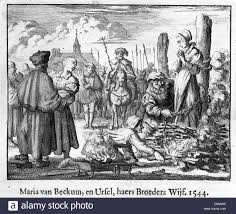Religious Toleration in England
GP: The Industrial Revolution could not have occurred without the development of religious toleration in England. There is a definite historical progression from religious toleration to political toleration to the affirmation of property rights and the enforcement of patents. And there is a paradoxical, dialectic relationship between patents and progress. On the one hand patents give the inventor the incentive to imagine and create. On the other hand, it holds other back from improving upon his invention.
By W.K. Jordan
The Laymen and the Moderates:
The revolutionary period witnessed the triumph of the lay spirit in England. We have previously observed that an important body of lay thought had been developing in England which had embraced the principles of religious toleration and which was disposed to wrest from the hands a divided clergy the solution of the complex problems of the settlement of religion and the treatment of dissent. The outbreak of civil war had the immediate effect of intensifying religious conflict within the realm of losing for the time being the destructive forces of fanaticism and sectarian intolerance. The cool and reasoned persuasions of moderate counsels were for the moment engulfed by a tide of religious extremism. It was again demonstrated that war and the fanaticisms which undergird it are destructive to the slow but constructive processes by which reasonable and moderate men seek to solve the problems that confront mankind.
